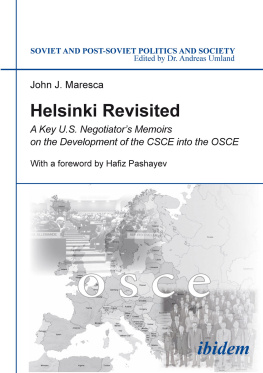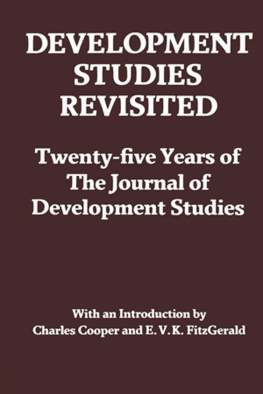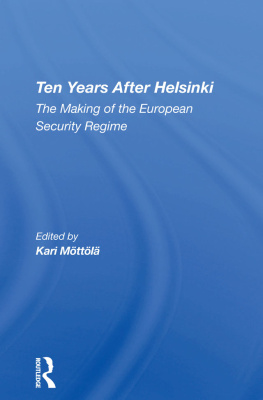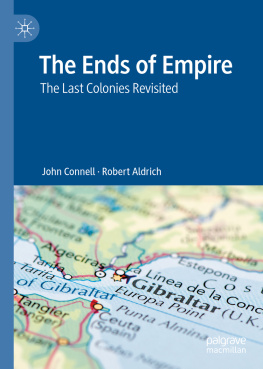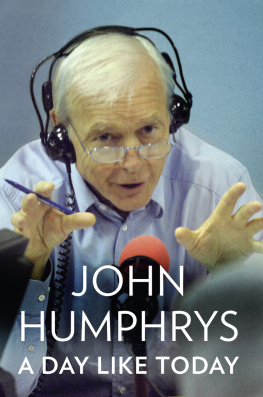ibidem Press, Stuttgart
For my two only loves and my blessings
my wife Sisi, to whom I am indebted
for her u nderstanding and support,
and our lovely daughter Azadeh.
Foreword
John Maresca was certainly one of the people who was most clos e ly involved in the early development of the CSCE, from the prep a rations at NATO, to its early years in Helsinki and Geneva, to the key Summit meeting in Helsinki in 1975, when the historic Final Act was signed. He is one of the few Americans who focused on the development of the CSCE during that period. As the central US official developing the CSCE in Washington he also helped to shape policies for the follow-up to the Helsinki Conference, and his 1985 book on the Helsinki negotiations remains a unique re c ord of those landmark events.
Later Maresca also played a key role as the Soviet Union was di s solved, the CSCE was reconvened in an effort to permit East-West dialogue and elements of restraint and cooperation as local co n flicts appeared in the regions of the former Soviet Union and Y u goslavia. Uniquely, he was not only the Deputy Head of the US Delegation to the Geneva-Helsinki negotiations, but also the Head of the US Delegation to the negotiation of the Charter of Paris for a New Europe, the first attempt to chart new relations in Europe following the end of the Cold War. The Charter became the basis for the organization now known as the Organization for Security and Cooperation in Europe (the OSCE). Maresca was a pioneer in seeking to promote dialogue and negotiation on the first local conflict to appear at that time in the post-Soviet space, the conflict between Armenia and Azerbaijan, which remains unsettled more than twenty years later. This conflict was the precursor of a nu m ber of conflicts that have developed in the former Soviet space, and continue to fester today.
I met Maresca in March 1993 during my first appearance as a phys i cist-turned- diplomat at a Congressional hearing on the conflict in the very early stage of my Ambassadorial tenure in Washington, D.C. His insights and analyses regarding the negotiating process during the key years of transition from the height of the Cold War to its concl u sion with the Charter of Paris and the Joint Declaration of Twenty-Two States are very relevant today, as the world faces new challenges in the European region, many of which relate to the commitments contained in the Helsinki Final Act and the Charter of Paris. They are especially relevant to the situation in Ukraine and Crimea, and to Russias approach to these problems.
The Organization for Security and Cooperation in Europe the OSCE which grew out of the negotiation of the Helsinki and Paris agreements, has become a significant element in the European equ a tion, one which has unique capacities for entering and influencing potential conflicts in the region. The OSCEs Observers in Ukraine, for example, have played a positive role in maintaining a watchful outside presence. And the potential of this organization goes well beyond what it has been used for up to now.
Maresca has a broad and sophisticated understanding of these co m plex elements, including the important relationship between Europe and the states of the Caucasus and Central Asia, which have an esse n tial role to play as Europes relations with its neighbors to the East become increasingly important. His insights are particularly relevant at this key period of history, when the West is confronted with a ne w ly-active Russia, and an evolving strategic equation in Europe and its neighboring regions.
This book is written as a memoir, and contains new information and many fascinating insights about the development of the CSCE and its evolution into the OSCE. But it also contains some very astute ana l yses of current events, based on the history of the issues, which su r round them. It is, in fact, a commentary on the current situations in these regions, based on the way these situations developed.
It is a book, which should be of great interest to anyone who is inte r ested in the recent history and the current and future state of affairs in Europe, including the Caucasus, Central Asia, and what Russians call their Near Abroad.
Hafiz Pashayev
Rector
ADA University
Baku, Azerbaijan
Stresa , 1940
International events , and war , marked my life from the very b e ginning. I was born in the Villa degli Azalees, in the gardens of the Grand Hotel et des Iles Borromees, a huge luxury hotel which is a national historical monument in Stresa, on the shores of Lago Maggiore in the a lpine northern reaches of Italy. Italy was ruled by Benito Mussolini.
My father was the long-time Director of the hotel, a nd my mother was an award -winning American painter, cartoonist and designer who met and married my father while on a travelling fellowship. My older sister and I spent our early years at my fathers villa on the grounds of the hotel, or at the Maresca family home in Sorre n to, in the South. Marescas have been citizens of Sorrento since the 12 th century.
It was a glamor ous li fe. My parents spent their social hours wit h the many European aristocrats and other prominent figures of the time, who came to the hotel for their holidays . A nd of course Er n est He mingway had left his mark it is the hotel which features in A Farewell to Arms, where the two lovers start rowing north, to Switzerland, to escape from the First World War in Italy. That imaginary overnight rowing effort , from my fathers hotel to the Swiss shore, was the ir farewel l to a rms.
But developments in Europe once again were ominous. Italy i n vaded and annexed Albania in April of 1939 , and w hen the Ge r mans inv aded Poland in September , my parents decided that my mother should take the two children to America for the duration of the war , which they thought would last about six months . U nder Italian wartime laws, my father could not leave the country , so my mother, my sister and I left Genoa on the Conte di Savoia , the iconic flagship of the Italian Line, in the spring of 1940, when I was two years old. We never saw my father again.
The trans-Atlantic passage was already peri lous; ships were being sunk. The Conte di Savoia had been guaranteed safe passage to Gibraltar, where British citizens disembarked, and onward to New York lit up at night so that it would not be torpedoed. The Conte di Savoia was indeed torpedoed, later in the war.
When we arrived in New York we had some difficult y getting off the ship. The Italian customs official said my sister and I were Italian, and under the wartime regulations would have to return to Italy. But the Italian Line was part-owned by my fathers hotel company, the influential CIGA chain of luxury hotels , and the Ca p tain of the s hip knew who we were . H e pressed the Italian official, who shrugged and let us disem bark.
We presented ourselves to t he American Immigration Officer on the pier, and my mother handed over her US passport , issued by the Consulate in Milan, which included her two small children , aged 2 and 4 . She had been living in Europe for ten years. A fter some nervous hesitation, she asked: Can you please tell me: what is the nationality of my two children?
The Immigration Offic er took a few moments to reply as he looked over our documents. Then he said , in a classic Brooklyn accent : Lady , ... as of now (and he stamped our papers), theyre Amer i can citizens. It was our farewell to arms.
Introduction
Frontiers can be changed, in accordance with international law, by peaceful means and by agreement.
Final Act, Helsinki, 1975
The historic evolution of events which has taken place in Europe since the early 1970s is on-going, and we cannot ye t see how it will stabilize, whether it will settle out peacefully or will continue to be filled with bloody local conflicts.

